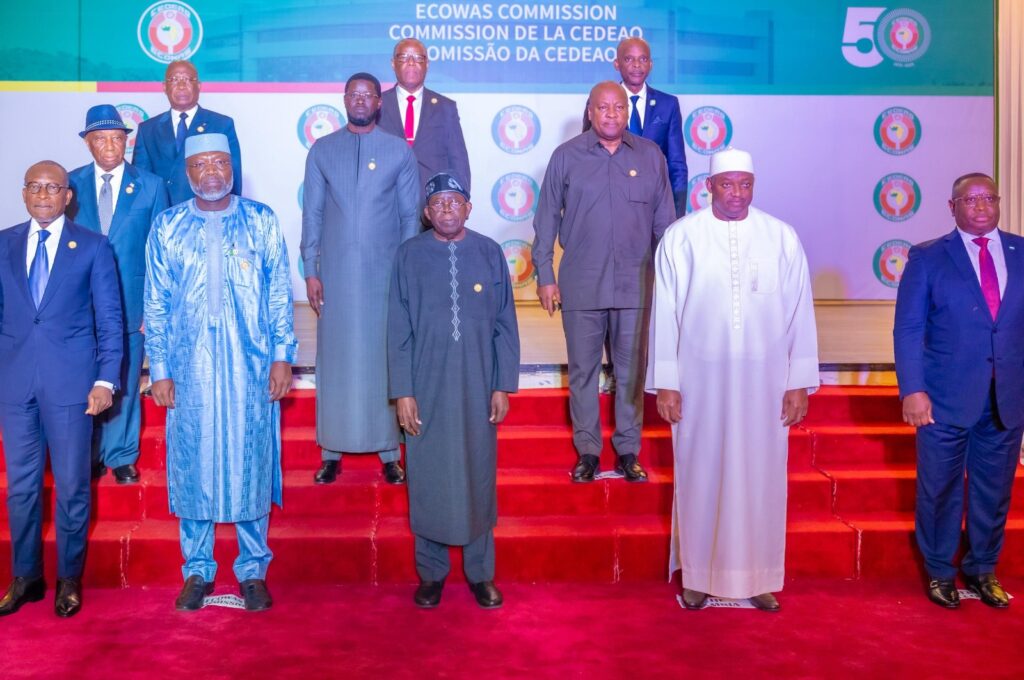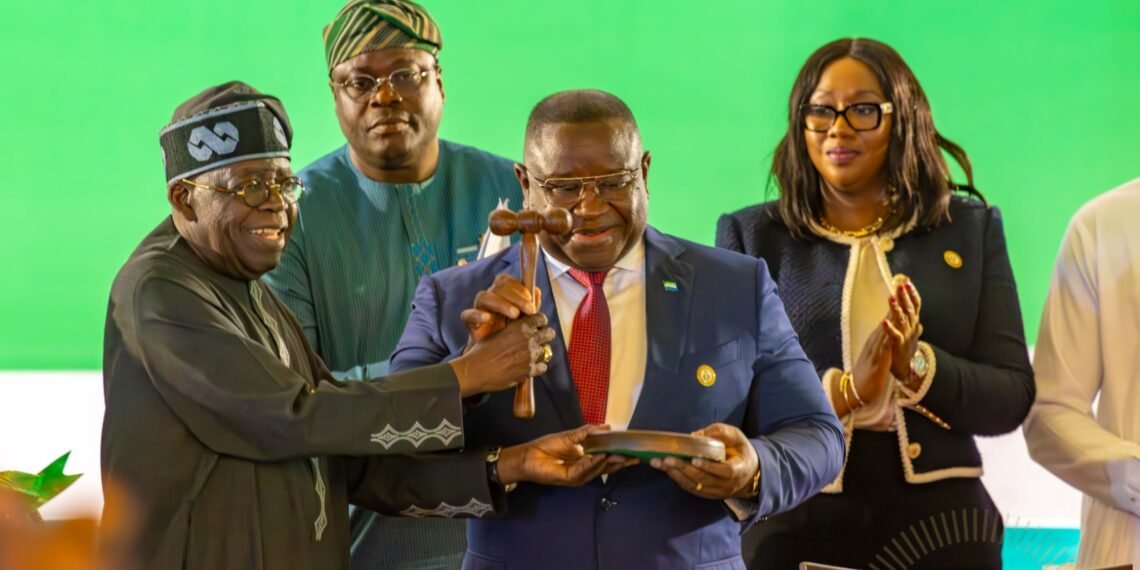H.E. Julius Maada Bio, President of Sierra Leone, has assumed the role of Chairman of the Authority of Heads of State and Government of ECOWAS for a one-year term, succeeding Nigeria’s President Bola Ahmed Tinubu.
In his inaugural address, President Bio acknowledged the daunting challenges confronting West Africa, pointing to enduring security issues and evolving political threats.
“The West Africa we lead today is facing serious challenges — some long-standing, others new and evolving. We are still confronting insecurity in the Sahel and coastal states. Terrorism, political instability, illicit arms flows, and transnational organised crime continue to test the resilience of our nations and the effectiveness of our institutions.”
H.E. Julius Maada Bio
He emphasized that democratic institutions in some areas are under pressure and added: “The democratic space is under strain. In parts of our region, the constitutional order has been disrupted.” However, Bio expressed optimism, noting that “our vibrant and youthful population, abundant natural resources, and entrepreneurial spirit remain our strongest assets.”
Positioning ECOWAS as a vital tool for development, Bio called for a renewed commitment to making the regional body more accessible and impactful. “In this context, ECOWAS’s mandate must be redefined — not as a distant institution but as a proactive, people-centred vehicle for peace, inclusion, and opportunity,” he stated.
The summit also saw member states deliberate over a range of pressing issues, including the 94th Ordinary Session of the Council of Ministers, the current state of the community, and political and security developments in the region.

Fifty Years Of Regional Progress
During the session, H.E. Dr. Omar Alieu Touray, President of the ECOWAS Commission, welcomed the new leadership while commending Nigeria’s stewardship under Tinubu.
Dr. Touray praised the region’s progress over five decades, describing ECOWAS as Africa’s most advanced regional bloc despite facing substantial challenges. He urged member states to increase support for private sector growth to deepen integration and job creation.
He further acknowledged the progress in re-engaging the three member states that had previously withdrawn from ECOWAS, highlighting ongoing dialogue aimed at fostering unity.
President Tinubu, in his opening remarks as the outgoing Chair, reflected on the institution’s past achievements and future hurdles. He emphasized collective action against regional threats: “No single Nation can address these challenges alone. We must rethink coordination, amplify political will, and prioritise a collective approach to security.” Tinubu stressed the importance of “decisive action on the fight against terrorism” to uphold peace and stability.
The summit was also addressed by H.E. Leonardo Santos Simão, Special Representative of the UN Secretary-General for West Africa and the Sahel (UNOWAS), who reinforced the UN’s support for the region. He described terrorism as the most urgent threat and called for unified efforts.
From the African Union, H.E. Mahmoud Ali Youssouf’s message, delivered by Ambassador Bankole Adeoye, applauded ECOWAS’s 50-year legacy. He reaffirmed the AU’s commitment to working closely with ECOWAS and highlighted the importance of innovation, education, and inclusive development led by youth and women.
As ECOWAS enters its next phase under President Bio’s chairmanship, the calls for integration, peace, and people-first leadership remain louder than ever.
READ ALSO: The Market Voting With Its Wallet!– Analyst Slams Gov’t Over T-Bill Shortfall



















